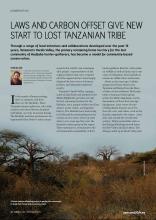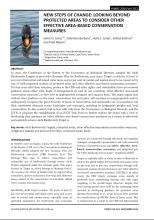Land Library
Welcome to the Land Portal Library. Explore our vast collection of open-access resources (over 74,000) including reports, journal articles, research papers, peer-reviewed publications, legal documents, videos and much more.
/ library resources
Showing items 1 through 9 of 21.While the guarantees provided in the Katiba mark an extraordinary achievement for women’s land rights, many more steps are needed to reach gender-equitable land ownership in Tanzania.
Wildlife Management Areas (WMAs) have the potential to benefit both people and wildlife in Tanzania. But are Tanzanian communities earning enough from WMAs to want to protect the wildlife that live on their land?
Pastoralist and hunter-gatherer communities in Tanzania are gaining rights to own and control their land as the foundation for generating new income through REDD+
Communal lands are central to the livelihoods of many Tanzanians, particularly to pastoralists and hunter-gatherer groups. But a number of factors can undermine the security of these lands remaining ‘communal,’ in turn threatening the livelihoods of many people and cultures.
Through a range of local initiatives and collaborations developed over the past 15 years, Tanzania’s Yaeda Valley, the primary remaining home territory for the last community of Hadzabe hunter-gatherers, has become a model for community-based conservation.
In 2010, the Conference of the Parties to the Convention on Biological Diversity adopted the Aichi Biodiversity Targets as part of the Strategic Plan for Biodiversity 2011-2020.
Large-scale land acquisitions have increased in scale and pace due to changes in commodity markets, agricultural investment strategies, land prices, and a range of other policy and market forces.
The first draft of the Tanzanian constitution incorporates many provisions that will improve the rights and interests of pastoralists, huntergatherers and women in these communities.
In northern Tanzania, new grassroots groups called Women’s Rights and Leadership Forums (WRLFs) are mobilizing women and men in pastoralist communities to promote and defend local land rights.









